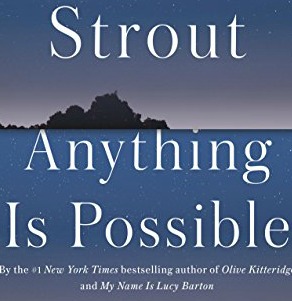A plot summary doesn’t really apply to this book, since it consists of a roundelay of short stories. In them, an older retired gentleman’s faith is tested by an unexpected response to kindness. A veteran of Viet Nam laughs at the (to him) antiquated concept of “character” when deciding to help his mistress out for the last time. A high school guidance counselor polices her own behavior, and shows kindness to a disrespectful teen (Lucy Barton’s niece) desperately in need of it. A middle-aged woman finally reaches an understanding with her mother who has fled to Europe to remarry. Children raised in abject poverty - foraging-in-Dumpsters poverty - raise themselves up to own and manage businesses.
And these bare synopses do nothing to tell how beautifully paced and painted these vignettes are. Strout again shows utter mastery of this form. We witness in distinct, utter clarity the heart-rending events in these lives; the language and heart couldn’t be more sympathetic or understanding. It inspires that awe we experience when in the presence of a master.
For instance, in “Snow Blind” we learn of the innocent and sanguine upbringing of a girl who becomes a captivating actress later in life. Farmland under a new blanket of blinding snow stands in for the young girl’s successful navigation of the threats around her. The beautiful and stark colors of the Italian coast set the scene in “Mississippi Mary”
of an elderly woman’s choice to live the last chapter of her life deeply in love. The uncertainty of his mistress’s given name corresponds to a troubled man’s confusion about the direction of his life in “The Hit-Thumb Theory.”
I could go on, but I don’t want to indicate that I followed the corners turned and characters revisited from story to story, because in fact I didn’t. I drank up these stories as they were poured out, with such clarity and such charity as can only be accomplished by Elizabeth Strout.



















No comments
Post a Comment